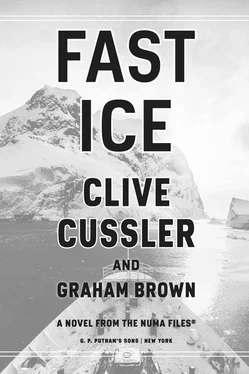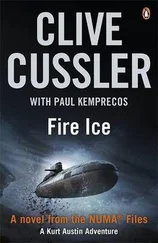As Joe laughed, Kurt wondered if he should have done more to make Cora stay. It was a question without an answer. But one he’d asked himself a hundred times in the past twenty-four hours.
“Do you think she was happy after she left?”
“I think she was relieved,” Kurt said. “No more structure to fit into. No more chain of command, with her at the bottom. No more fighting. She wanted to change the world. Kind of hard to do that from a desk in the basement.”
“You think she reached out to Rudi to let him know she’d made good?”
“The thought crossed my mind,” Kurt said.
Joe nodded and then looked off in the other direction. He’d pried enough info out of his friend.
Kurt leaned back and tried to get some rest, but sleep remained hard to come by. He wondered why Cora hadn’t contacted him. He would have dropped everything to go help her if she’d reached out. She had to have known that. And yet the call hadn’t come.
The next two hours passed slowly. Kurt tried to rest for some of it yet found himself checking his watch and counting the minutes until they’d arrive over the stricken ship.
“Coming up on the wreck,” the pilot announced eventually. “Two miles out. Slowing and descending.”
As the helicopter closed in on the ship, it shed altitude and speed, giving Kurt and Joe a clear view of what lay ahead. The ship looked like an ice sculpture, every surface covered in frost from the ocean’s spray.
“She’s low in the water,” Joe said. “And definitely listing to starboard.”
The pilot’s voice came next. “Do you have a preference for how we approach the ship? Or where I set you down?”
Ideally, they’d have used the ship’s landing pad, but the Grishka ’s own helicopter was still on board, chained to the deck like a dragon frozen in ice.
“Circle the ship once,” Kurt said. “Check the wind and then take us out over the stern. Joe and I will rappel down to the deck.”
The pilot did as ordered, swinging wide and descending to a hundred feet.
As the helicopter circled, Kurt and Joe got ready for the egress. Voice-activated headsets were pulled on. Metal-studded climbing shoes, like those Kurt had worn on the frozen Potomac, were strapped to their feet. Backpacks filled with medical supplies and high-calorie liquid supplements were readied, just in case they found anyone alive down there.
With everything else set, they pulled on tight-fitting thermal coats, which NUMA called expedition jackets. Lightweight and well-insulated, they were heated by battery-powered coils and armored with rigid, puncture-resistant Kevlar panels. While the panels weren’t bulletproof, they would stop a knife or the sharp point of a protruding bit of wreckage.
Built-in tracking beacons were integrated into the jackets, while twin sets of LED lights, secured where the breast pockets would have been, could be switched on with the touch of a button on the collar. The lights were angled slightly downward and designed to illuminate the darkest of problems while keeping a man or woman’s hands free to work on whatever issue they found.
After checking their gear, Kurt gave the thumbs-up, pulled a harness around his body and attached it to a cable that hung by the helicopter’s door.
Joe did the same, moving carefully into position.
“You have your wetsuit on underneath those togs?” Kurt asked.
“Of course,” Joe said. “Think we’ll be going for a swim?”
Kurt grabbed the rappelling cable and prepared to throw it out the door behind him. “We’re supposed to find out what happened to this ship. If the problem is below the waterline, one of us is going to get wet.”
Joe had no doubt already predicted that. “Sounds like a job for the Director of Special Projects.”
“Unless he delegates it to his trusty assistant,” Kurt replied.
By now, they’d come around the far side of the Grishka . That brought an odd sight into view.
“Look at that,” Joe said.
Kurt finished adjusting his harness and glanced at the ship. Impact damage could be seen all along the port side of the vessel, while a wedge of ice extended outward from the hull. The ice grew along the side of the vessel, sweeping back toward the stern like a wing.
“They hit something,” Kurt said.
“Ten will get you twenty that iceberg is the cause of the list,” Joe added.
Kurt wasn’t so sure. “We’re about to find out,” he said. “Ready?”
As Joe nodded in the affirmative, Kurt slid the helicopter’s door back, allowing a whirlwind of frigid air to sweep into the cabin. With the door locked in place, Kurt and Joe tossed out a pair of weighted ropes that were attached to anchors in the ceiling of the cabin. They eased backward toward the open door, gripping the ropes tight and leaning outward until they achieved a near-sitting position with their feet planted firmly at the edge of the doorway and their weight supported by the ropes.
After a brief glance behind them, both men pushed out and dropped toward the ship. They slid down the ropes, descending a hundred feet in a matter of seconds, much faster than it would be coming down using the winch. They slowed their descent at the last instant, hitting the deck under complete control.
Kurt felt his studded footwear dig in and hold tight. The frost was thicker than he’d expected, an inch of solid ice in some places.
He and Joe detached themselves from the lines, motioning to the crewman in the back of the helicopter to haul the ropes in.
“We’re down and clear,” Kurt said into the microphone attached to his headset. “What’s your fuel situation?”
The pilot’s response carried the whine of the engines with it, sounding as if it was electronically altered. “Ten minutes before we have to head back to the Providence. ”
“No point hanging around,” Kurt said. “Head back now, refuel and stand by. We’ll radio the ship if we need help.”
“You’re putting a lot of faith in this frozen rust bucket,” Joe said.
Kurt looked around. “The sea is calm, the wind is nonexistent and this ship has been drifting for weeks. No reason it should suddenly go down now.”
“Unless we’re the straw that breaks the camel’s back,” Joe pointed out.
Kurt had to laugh. “So glad you’re an optimist. Let’s get moving and see what we can find.”
7
As the Jayhawk vanished to the north, the frozen deck of the Grishka grew deathly quiet. Kurt looked around. Every surface, every piece of machinery, every flat section or protrusion from the deck was covered in frost and ice.
“How many ships have you salvaged in your day?” Joe asked.
“Lost count years ago,” Kurt said.
“Ever see one like this?”
Kurt shook his head. As a salvage expert since his days in the Navy, Kurt had spent countless hours on stranded, drifting or sinking vessels. He’d fought fires on burning ships, shored up ruptured hull plating and had even run a vessel aground that could be stopped from sinking no other way. He’d investigated and refloated dozens of ships of every imaginable type. Each ship had a personality, each wreck its own story.
A priceless yacht driven aground by an intoxicated owner smacked of arrogance. An overworked ferry, glued together by corrosion and the endless ingenuity of its crew, reminded him of a loyal dog that finally grew too tired to run with its master.
He saw the Grishka as an apparition trapped between worlds. The gray ship had been made over in white. Strangely twisted icicles hung from every wire and overhang of the superstructure. It was a ghost, but one not quite ready to pass over to the other side.
“Never seen curved icicles before,” Joe said.
Читать дальше












